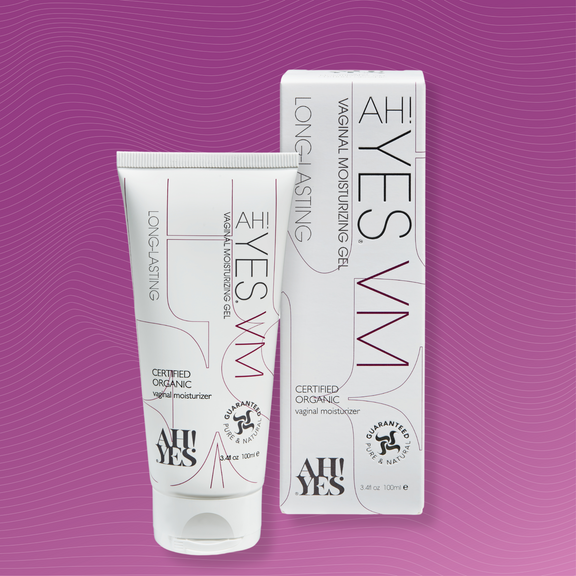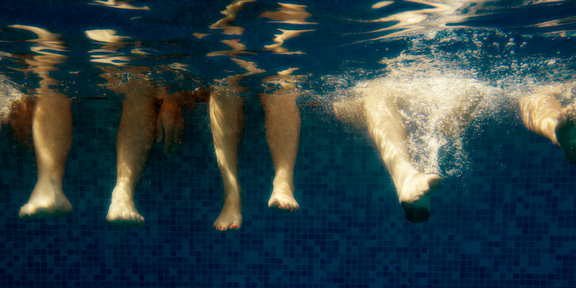Should I clean my vulva and vagina?
Should I clean my vulva and vagina?
First, it’s important to differentiate the vagina from the vulva. The vagina is often used as the term of choice for women’s genitalia, but vulva is actually the correct term to use to describe all of the external sex organs. The vulva includes the pubic mound, labia majora and minora, clitoris, urethra and vagina. Whereas the vagina is an internal organ, a muscular canal that runs from the cervix (the opening of the womb) to the vaginal opening.

Are vaginas self-cleaning?
The vagina is designed to clean itself inside the body with natural vaginal secretions (also known as discharge). You should not wash the vagina itself. If you wash the vagina internally, you can risk aggravating issues such as infections, dryness or odour by upsetting the pH balance of the vagina, particularly if using perfumed soaps or washes [1].
Vulva cleanliness
The vulva medically requires very little cleaning. Generally, it is recommended that you should stick to using water [2]. However, there might be occasions that you want to wash the vulva with more than just water – i.e. during your period, after sex or after playing sports. According to the NHS website, it is important to keep the perineal area between the vagina and anus clean, especially during your period suggesting that ‘during your period, washing more than once a day may be helpful’ [3]. Other instances may also include if a woman is experiencing certain conditions such as stress incontinence, faecal incontinence or Lichen Sclerosus and similar vulval dermatological conditions. Washing can be difficult for those living with Lichen Sclerosus and using soap on and around the affected skin should be avoided. Instead, a gentle pH-balanced foam wash such as AH! YES CLEANSE may be preferable.

Tips for washing your vulva
If you do want to wash your vulva with more than just water, we recommend the following advice:
-
Wash from front to back
When washing your vulva and labia, make sure you wash from front to back. Washing from back to front can transmit bacteria from the anus into the vagina and urethra, resulting in a UTI. The same goes for wiping when you’ve been to the toilet.
-
Avoid perfumed products
Try to avoid any perfumed products. These can affect the healthy balance of bacteria and alter the vagina’s pH level, leading to unpleasant irritation. Instead, use gentle, unscented products to gently wash around the vulva when necessary or when required. Avoid overcleaning as this can lead to irritation.
AH! YES CLEANSE comes in two varieties which includes Unfragranced and Rose. In AH! YES CLEANSE Rose, we use the tiniest amount of Rosa Damascena flower oil possible to create a gentle, natural scent. This ingredient is certified organic, which means that it has been through rigorous examination by The Soil Association.
-
Dry the area well
Once you’ve washed your vulva and the surrounding area, it’s important to dry it thoroughly but gently. Pat the area dry using a clean towel.
What products should I use to clean my vulva?
When cleaning the vulva, try to use water or as discussed earlier, if you would prefer a gentle, fragrance free, cleanser that is matched to the vaginal and vulval pH. Never use heavily scented soaps, as these can dry out and irritate the area. Remember, you should never clean the vagina itself, not even with water.
Can I use soap to clean my vulva?
Traditional soaps and shower gels can disrupt the natural vaginal pH as they contain ingredients such as SLS (Sodium Laurel Sulfate) and Glycerin which can dry out or irritate the delicate vulval tissues. Soap also undergoes a chemical reaction when mixed with water that increases the skin pH to 10 – 11, whereas the vulval skin is acidic, around 5.3-5.6.[4] In our opinion, these should be avoided.
What should I avoid when cleaning my vulva?
Douches
Although we have talked about cleaning or washing your vulva, you should never douche inside the vagina. Although there are plenty of myths out there stating that this will help you achieve an ultra-clean vagina, this simply isn’t the case. In fact, douching can cause inflammation and alter the vaginal pH.[5] Studies have shown that it damages the healthy vaginal bacteria and protective mucus layer, which then makes it more vulnerable to bacterial vaginosis. Paradoxically also killing the good bacteria which may increase vaginal odour.[6]
Vaginal steaming
Vaginal steaming is another no-no in our opinion. Some alternative health sites suggest using vaginal steaming to clean your vagina. This involves sitting on a steam bath containing a range of herbs, which supposedly clean the vagina and improve the health of the uterus. However, there is very little evidence to suggest that vaginal steaming is effective, as the steam cannot penetrate the vaginal tissue or reach the uterus.[7] The herbs used may also irritate the vagina and vulva, while the hot steam can cause severe burns.
Feminine deodorant sprays
It’s also important to avoid feminine deodorant sprays, perfumes, detergent sprays, and soaps containing perfume as these can disrupt the vagina’s natural balance. It’s normal for the vulva to have a scent and the vaginal and vulval odour can change at difference times during the reproductive cycle, so this shouldn’t be thought of as a concern. However, if you do experience a smell that is unpleasant or unusual for you, then you should see your gynaecologist to rule out an infection.
How to keep your vulva clean… during pregnancy
During pregnancy you may experience changes to your vulva. [8] You might notice more discharge, vaginal swelling, increased odour and varicose veins in the vulva [9]. Vaginal infections are also more common, including yeast infections and bacterial vaginosis.
While it may be tempting, it’s important that you don’t over-wash the area when you’re pregnant. Washing the vulva gently, when required with water should be enough. Because of the increased discharge, it’s important to let the area dry thoroughly before dressing – try letting it air dry before patting gently with a towel.
Look after your general health
Finally, to keep your vagina and vulva in optimum health, it’s important to stay in good health generally. That means a healthy diverse diet leading to good gut health and plenty of exercise. There is increasing interest by medical professionals in the importance of the vagina biome (the ecosystem that exists in the vagina) and there are probiotic products available specifically for vaginal and urinary tract health [10]. Walking and running also helps the pelvic floor to tone up and ensure good general health [11].
References:
[1] https://www.ncbi.nlm.nih.gov/pmc/articles/PMC2677128/
[4] The Vagina Bible, Dr Jen Gunter, page 95
[5] https://www.medicinenet.com/vaginal_douche_douching/article.htm
[6] The Vagina Bible, Dr Jen Gunter, page 104
[7] https://drjengunter.com/2015/01/27/gwyneth-paltrow-says-steam-your-vagina-an-obgyn-says-dont/
[8] https://www.ncbi.nlm.nih.gov/pmc/articles/PMC2677128/
[11] https://www.nhs.uk/live-well/sexual-health/keeping-your-vagina-clean-and-healthy/




